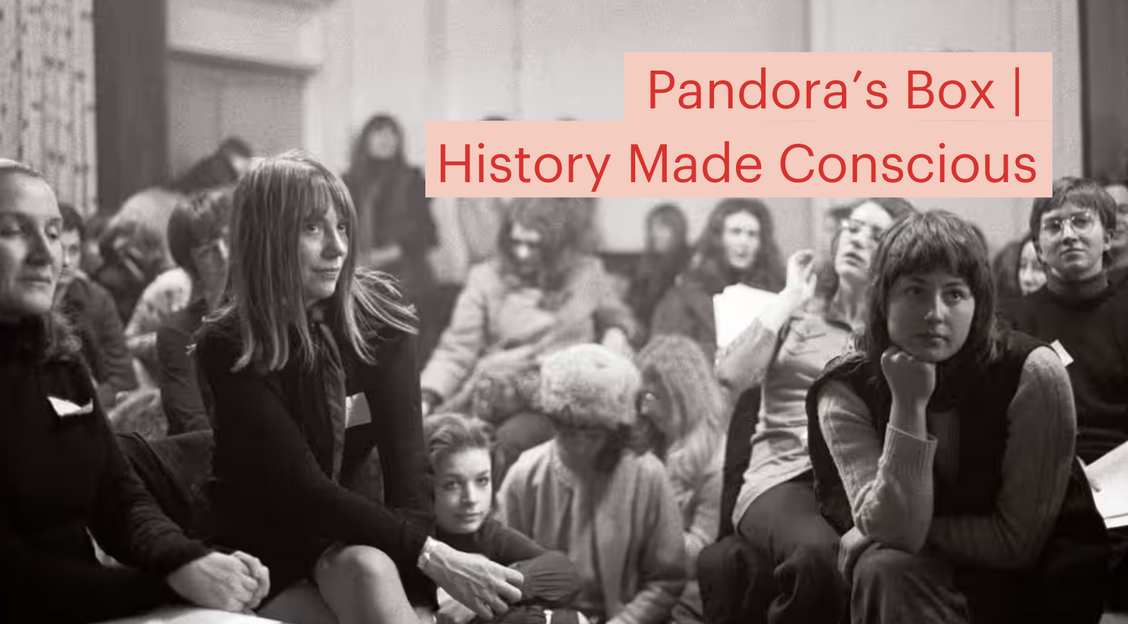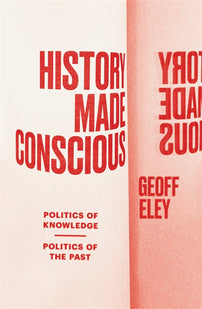Pandora’s Box | History Made Conscious
The opening of pop culture, literature, the arts, aesthetics and all of intellectual life to Marxist view in the late twentieth century marked bold and disruptive possibilities for feminist thought.

A freshly diffused academic Marxism, flourishing for the first time in the English-speaking universities of the UK and the US in the 1980s, embraced various kinds of radically disconcerting but boldly unrelenting antireductionism. The thinkers involved seemed initially to uphold the tradition’s classical commitments, whether in Louis Althusser’s ‘antihumanist’ separation of the mature from the young Marx, in the wider structuralist emphasis on modes of production and an economically centred conception of class, in the revival of Marxist economics, in Harry Braverman–inspired studies of the labour process, or in feminist debates over domestic labour. Capital was reinstated as the starting point.
At the same time, these discussions defined themselves in no uncertain terms as departures, as critical advances on earlier modes of economism. The ‘base/superstructure’ model of social determination, with its assignment of logical priority to the economic, came under particular attack. Althusser’s impact opened a gap in those orthodoxies, through which a host of mainly French influences – Lacanian psychoanalysis, Saussurean linguistics, the philosophy of science of Gaston Bachelard and Georges Canguilhem, the aesthetics of Pierre Macherey, semiotics and theories of film, and so forth – was then able to rush. This freeing of politics and ideology for ‘relatively autonomous’ analysis, anchored to the economy via ‘structural causality’ and ‘determination in the last instance’, opened the entire domain of the ‘noneconomic’ to Marxist view – aesthetics, literature, the arts, theories of knowledge and the disciplines, intellectual life, popular culture, sexuality, and so forth – in short, ‘culture’, as a convergent strain of British dissenting Marxism was then seeking to define it.
The excitement of those days, the sense of participating in a continuous and unsettling exercise in revision, was extraordinary. The outcomes both internationalized (or at least Europeanized) a previously parochial intellectual culture, wrenching it towards openly theorized modes of exchange while simultaneously questioning earlier terms of address. That process can easily be narrated as more unified, more coherent, and more logically continuous than it was (or could have been), with one move following naturally on another, causally inscribed in the contradictions and insufficiencies of before. Yet intellectual histories are seldom undertaken as straightforwardly and rationally as that. The experience was divisive as much as harmonious, driven by conflicts and disruptions as well as its own logical momentum.
Feminism was, by far, the most important influence – not only as a disruption, but not as an integral element either. Assimilating feminist thought smoothly into this narrative as just one element among many, whether historiographically or in relation to the overall linguistic turn, would be misleading, indeed disingenuous. Far better to disturb the narrative and unsettle its coherence by keeping feminism’s apartness and capacity to challenge and make the ideas anew. On the one hand, as Terry Lovell observed, contemporary feminist writing followed a trajectory quite recognizable in the aforementioned terms:
The journey begins with Marxist- or socialist-feminist writings (in history social science and cultural studies), seeking to uncover the material conditions of women’s oppression under capitalism; it advances with the recognition that certain aspects of that oppression do not yield very readily to Marxist categories and that a more adequate account of feminine subjectivity is required for an understanding of the ways in which that oppression is lived, which might be sought in psychoanalysis rather than Marxism. Then, via Lacan and modern theories of language, the journey continues into the ‘post- structuralism’ and ‘deconstructionism’ whose luminaries include Foucault, Derrida, and Kristeva. Some travelers continue beyond feminism itself, into a ‘postfeminism’ and ‘postmodernism’ which understand both Lacanian psychoanalysis and Marxism to have been mere staging-posts along the way.
On the other hand, it was still sharply apart. In an essay notable among social historians for engaging theoretically with this question, Sally Alexander put this extremely well:
If feminism has been only one of the detonators of crisis in marxist thought and practice it has been the most insistently subversive because it will not give up its wish to speak in the name of women; of women’s experience, subjectivity and sexuality . . . We were asking the impossible perhaps. As a feminist I was (and still am) under the spell of those wishes, while as a historian writing and thinking in the shadow of a labor history which silences them. How can women speak and think creatively within Marxism when they can neither enter the narrative flow as fully as they wish, nor imagine that there might be other subjectivities present in history than those of class (for to imagine that is to transgress the laws of historical materialism)?
Such debates played havoc with received forms of Marxist and more generally materialist understanding. The logic of antireductionist critique brought countervailing effects, both the unforeseen consequences of ‘post-Marxist’ fields of address and widespread dismay over the apparent ‘retreat from class’. What for some was the feared Pandora’s box of uncontrollable heterodoxies remained, for others, a bottomless bag of tricks, disclosing not only the antireductionist possibilities mentioned above but the more daring options of postmodernism and the linguistic turn.
That restless probing of limits showed no signs of a halt. Shibboleths were falling one by one. By ever more sophisticated readings of Gramsci, Foucault, Voloshinov and Bakhtin, French post-structuralism, British cultural studies, and still diversifying feminist theory, the antireductionist momentum carried far beyond the intellectual starting-points of the 1960s, bringing the original materialisms badly into doubt.
— Excerpted from History Made Conscious: Politics of Knowledge, Politics of the Past by Geoff Eley
[book-strip]
